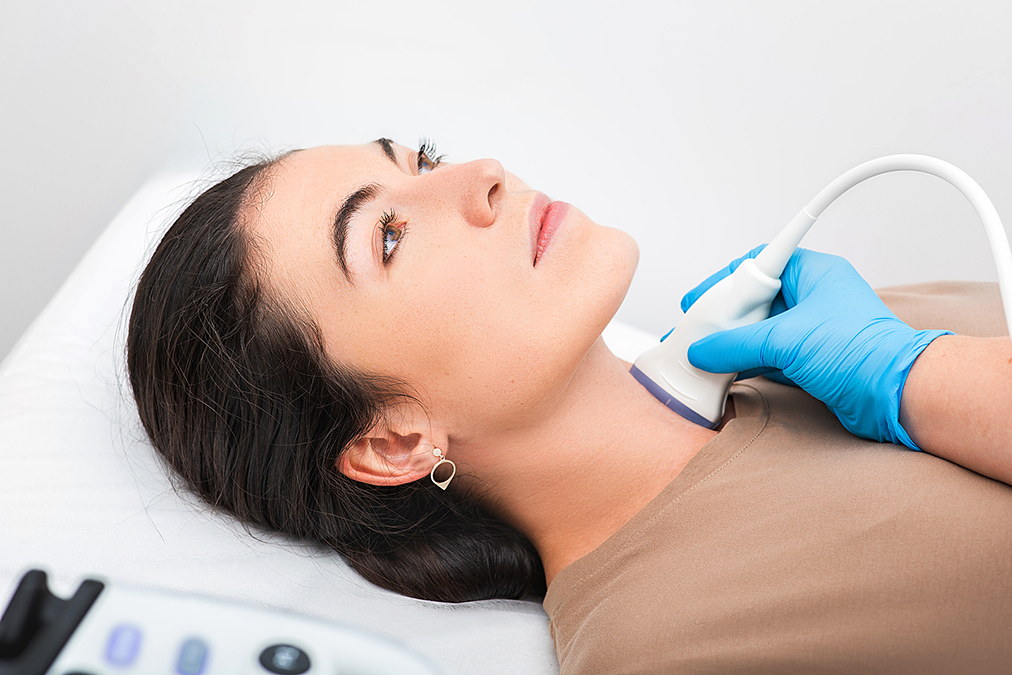 Health advocates have been busy banning various chemicals used in cleaning products and everyday items.
Health advocates have been busy banning various chemicals used in cleaning products and everyday items.
Instead, they recommend “healthy” alternatives.
Except that these healthy alternatives cause hypothyroidism — that’s according to a new study in the journal Environmental Science & Technology.
That’s exactly what happened with sodium p-perfluorous nonenoxybenzenesulfonate (or OBS), which replaced perfluorooctanesulfonate (or PFOS) after health concerns emerged about the safety of the latter.
PFOS is a “forever chemical” that is now widely banned.
But is OBS really safe as a substitute?
The authors of this study used two models to explore whether OBS could affect thyroid health — especially with long-term exposure to small amounts like those we might encounter in everyday life:
-
1. A mice model, in which mice were given low doses of OBS to mimic regular human exposure.
2. In a human model, thyroid cells grown in the lab were exposed to OBS to see how they would respond.
They then used a powerful set of scientific tools known as multiomics (which looks at genes, proteins, and metabolic changes) to get a detailed picture of what was happening inside the cells and tissues.
What they discovered was concerning:
-
1. Mice exposed to low doses of OBS developed signs of primary hypothyroidism, where the thyroid gland itself is damaged and underactive.
2. In the mice, the number of thyroid cells dropped, and the ones that remained showed abnormal function.
3. In human cells, OBS triggered a strange and newly discovered type of cell death called disulfidptosis, which damages cells by disrupting their internal chemistry.
4. The thyroid hormone production pathway was blocked in both mouse and human cells after OBS exposure.
Unfortunately, these chemicals are very hard to avoid.
They tend to be in non-stick cookware, waterproof clothing, food packaging, and stain-resistant carpets and furniture.
So, you can reduce your exposure by avoiding products marketed as “stain-resistant,” “waterproof,” or “grease-proof.”
For example, use glass, stainless steel, or cast-iron cookware instead of non-stick pans.
Otherwise, check product labels and look for fluoro or perfluoro ingredients — especially in cleaning products, cosmetics, and food packaging.
But OBS is only a small part of the problem.
I’ve helped hundreds (probably thousands) of people to heal their hypothyroidism.
And one of my tools has been to avoid everyday chemicals that cause hypothyroidism.

 Overcoming IBD
Overcoming IBD Multiple Sclerosis
Multiple Sclerosis Banishing Bronchitis
Banishing Bronchitis Gum Disease Gone
Gum Disease Gone Overcoming Onychomycosis
Overcoming Onychomycosis Neuropathy No More
Neuropathy No More The Prostate Protocol
The Prostate Protocol Brain Booster
Brain Booster
 Ironbound
Ironbound
 Solution for Shingles
Solution for Shingles
 The Bone Density Solution
The Bone Density Solution
 The Ultimate Healing Protocol
The Ultimate Healing Protocol
 The Parkinson's Protocol
The Parkinson's Protocol
 The Chronic Kidney Disease Solution
The Chronic Kidney Disease Solution
 Overthrowing Anxiety
Overthrowing Anxiety The Fatty Liver Solution
The Fatty Liver Solution The Hypothyroidism Solution
The Hypothyroidism Solution
 The End of Gout
The End of Gout The Blood Pressure Program
The Blood Pressure Program
 The Oxigized Cholesterol Strategy
The Oxigized Cholesterol Strategy
 Stop Snoring And Sleep Apnea Program
Stop Snoring And Sleep Apnea Program
 The Arthritis Strategy
The Arthritis Strategy The Vertigo & Dizziness Program
The Vertigo & Dizziness Program The 3-Step Diabetes Strategy
The 3-Step Diabetes Strategy Hemorrhoids Healing Protocol
Hemorrhoids Healing Protocol The Erectile Dysfunction Master
The Erectile Dysfunction Master Weight Loss Breeze
Weight Loss Breeze The IBS Program
The IBS Program The Insomnia Program
The Insomnia Program The Migraine and Headache Program
The Migraine and Headache Program The Neck Pain Solution
The Neck Pain Solution The Menopause Solution
The Menopause Solution The Ejaculation Master
The Ejaculation Master The TMJ Solution
The TMJ Solution The Acid Reflux Solution
The Acid Reflux Solution The Fibromyalgia Solution
The Fibromyalgia Solution The Psoriasis Strategy
The Psoriasis Strategy